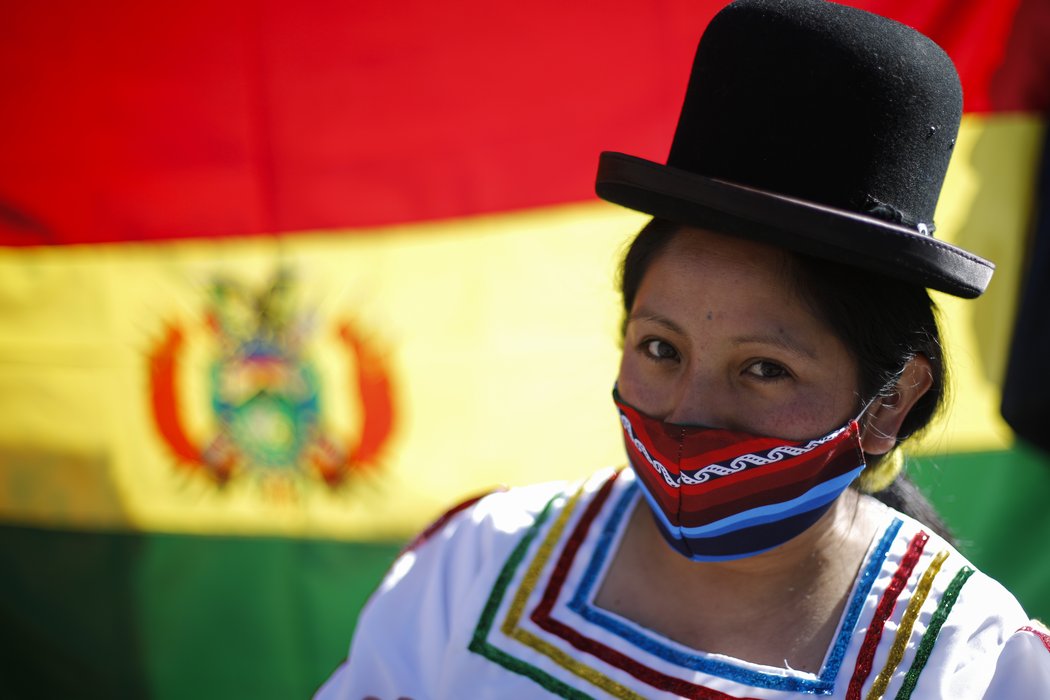
Association
La Misión manifiesta preocupación por declaraciones de algunas autoridades que llevarían a desatender requerimientos de la @DPBoliviaOf. Cualquier divergencia con su titular debe canalizarse institucionalmente sin desconocer el mandato de una instancia clave para los #DDHH.
— OACNUDH Bolivia (@Oacnudh_BO) July 14, 2020
On 13th July 2020, Bolivia’s interim government published a statement claiming Ombudsperson Nadia Cruz was occupying this office illegally and that, as a result, they would not recognise any actions undertaken by her after April 2019. According to the statement, Cruz was elected in an interim capacity and her term should have ended at that time. The interim government also accused Cruz of answering to political interests linked to former president Evo Morales’ party, MAS. In a press conference on 14th July 2020, representatives of the institution responded that the government had used outdated legislation to make these accusations and that their intention is to discredit and obstruct important human rights work.
The Office of the UN High Commissioner for Human Rights (OHCHR) expressed concern about declarations which would lead to the disregard of requirements made by the Ombudsperson’s office. The OHCHR highlighted that any divergence regarding the institution’s leadership should be resolved through institutional channels without ignoring the mandate of a key human rights organisation.
Peaceful Assembly
The charges vs Escobar, Gareca, et al are similar, linked to the May protests in K'ara K'ara: terrorism, instigating to commit a crime, criminal association & more. Asking for 15-20 years jail sentences based on shabby excuses for evidence. Criminalization of protest in #Bolivia. pic.twitter.com/hHM5Az6GYn
— AndeanInfoNet (@AndeanInfoNet) June 23, 2020
On the outskirts of Cochabamba, one of Bolivia’s hardest hit cities during the COVID-19 outbreak, conflict reignited in the neighbourhood of K'ara K'ara. As previously reported on the Monitor, as quarantine measures were implemented local residents protested the lack of government assistance during the COVID-19 pandemic with both peaceful and violent demonstrations. After protests in May and June, three protest leaders were arrested for terrorism and violations of public health regulations. On 4th July 2020, anti-riot police used tear gas and helicopters to disperse protesters who had been demanding access to public services, the release of the three leaders and flexibile quarantine measures. A group of demonstrators blocked entrance to the neighbourhood for several days, stopping the flow of services such as waste collection. Bolivian news outlets also reported that some protesters had used dynamite detonators and chemical agents during the clashes. The blockade ended when a new agreement with municipal and departmental authorities was reached on 11th July 2020.
Given the concerning situation, the OHCHR called on both government and protesters to seek dialogue in reaching a long-term solution and to comply with the agreements previously reached. The Inter-American Commission on Human Rights (IACHR) also expressed concern and underscored that Bolivia’s government should not criminalise social leaders and protesters or use vague legislation to sanction protest. In addition, the IACHR stated that they had received information indicating that private actors with alleged support from some authorities took violent action against local residents and authorities during the conflict.
In a separate development, in June 2020 artists in several cities protested against the fusion of Bolivia's Ministry of Cultures and Tourism into the Ministry of Education's portfolio. This was announced by the government among a series of a administrative cost-containment measures. On 8th June 2020, artists and other workers from the culture sector joined a demonstration in La Paz. During the march, groups performed music, dances and showed their work while holding signs with messages such as "I am an artist, I am not an absurd expense".
Expression
#Bolivia: On June 3, Junior Arias, host of the news program “Behind the Truth” on the broadcaster Gigavisión, announced on-air that he was stepping down from his job, saying he felt threatened by the Bolivian government’s response to his work.https://t.co/GhlZF7vX87
— Committee to Protect Journalists (@pressfreedom) June 10, 2020
On 3rd June 2020, journalist Junior Arias, news host for broadcaster Gigavisión, announced that he was temporarily stepping down from his job because he felt threatened by the government’s response to his work. In late May 2020, Arias had reported that the interim government bought tear gas at inflated prices from Brazil. Hours after the programme aired, the Ministry of Interior released a statement calling the report false and saying the story was part of a “dirty war and dirty politics”. Afterward, Gigavisión aired a report alleging that police officers had been instructed to monitor and smear the journalist.
In a separate incident, Edison Lanza, the Special Rapporteur for Freedom of Expression of the Inter-American Commission on Human Rights, expressed concern over the assault against press professionals in Entre Rios, department of Cochabamba. On 11th June 2020, a crowd of about 50 residents attacked a group of journalists, kicking and punching Unitel TV reporter Rodolfo Orellana, camera operator Joel Orellana and driver Iván Escobar. They were forced to stop filming, their equipment was damaged and some personal belongings stolen. El Deber journalist Soledad Prado was also attacked and said the residents tried to lynch the journalists and threatened to burn them alive. The police intervened and were able to escort the communicators to safety.
Cartoonist Abel Bellido Córdova, known as Abecor, has been subjected to threats and harassment online since April 2020. As reported by CPJ, the threats began in response to satirical cartoons published on his professional Facebook page and by independent media Página Siete. On 13th June 2020, the cartoonist received a death threat from the alleged account of a Potosí lawyer and former government employee. “You have an expiration date and it is the 6 September 2020,” the message read. On 14th June 2020, the OHCHR in Bolivia condemned the recurring threats against Bellido Córdova, calling on authorities to investigate and ensure his protection.